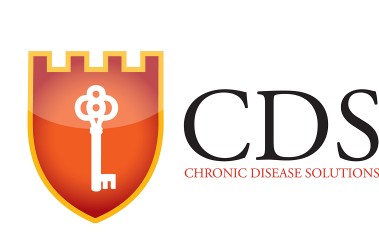Frequently Asked Questions
The Physician of a practice has the most important task but is not heavily involved in the implementation. We have found that the more invested the Physician is in Chronic Care Management, the more successful the program will be. As far as any disruption, the only time we require a Physician’s direct involvement is during the Kick-Off meeting and the approval process of workflows.
The Chronic Disease Solution’s Implementation Team prides themselves on not being a disruption to your staff. Our typical implementation involves your staff attending a kickoff meeting that will last approximately an hour and a half. Going forward there may be some small changes your office workflow needed to successfully implement Chronic Care Management.
Important question! See our Medical Practice Revenue page for more information!
The requirement is at least 20 minutes of non-face-to-face clinical time directed by a physician or other qualified healthcare professional per calendar month. These are the required elements:
- Multiple (two or more) chronic conditions expected to last at least 12 months, or until the death of the patient*
- Comprehensive care plan established, implemented, revised, or monitored
*Chronic conditions place the patient at significant risk of death, acute exacerbation/decompensation, or functional decline.
Yes. There are four types of services that cannot overlap with CCM services on the same day, as some services provided in the care management component may be provided by another service.
CPT code 99490 cannot be billed during the same service period as CPT codes 99495– 99496 (transitional care management), Healthcare Common Procedure Coding System (HCPCS) codes G0181/G0182 (home health care supervision/hospice care supervision), or CPT codes 90951–90970 (certain End-Stage Renal Disease services). Also consult CPT instructions for additional codes that cannot be billed during the same service period as CPT code 99490. There may be additional restrictions on billing for practitioners participating in a CMS sponsored model or demonstration program.
The same as any other billable code, the patient is responsible for deductibles, co-payments, and remainder amounts according to the patient’s insurance agreement. Unfortunately 99490 is not exempt from cost-sharing rules, so Medicare Part B patients with no secondary coverage will be responsible for approximately $8/month. The intent of the code is to reduce costs for all parties, including the patient. Better coordination means fewer visits, which in turn reduces the patient’s overall out-of-pocket expenses.
Yes. There is a 20% coinsurance amount required, but if the member has supplemental insurance or is a dual-eligible (Medicare and Medicaid), the copayment may be covered.
Depending on geographic calculations, the average reimbursement is $38.35.
Medicare and Medicare Advantage plans. Private insurance companies such as BCBS and others, are evaluating now and plan to accept it very soon
CDS can perform services anywhere in the country.
30-60 days.
You and your staff have unlimited access to your patient’s health information in Chronic Disease Solution’s system. We will provide updated health summaries each month. CDS will provide a monthly billing report that includes details for the patients who had 20 minutes or more of CCM services.
CDS abides by all Federal HIPPA requirements. CDS will produce signed HIPAA agreements with everyone enrolled into our system. Also, Electronic PHI has been encrypted as specified in the HIPAA Security Rule by “the use of an algorithmic process to transform data to a form in which there is a low probability of assigning meaning without use of a confidential process or key” (45 CFR 164.304 definition of encryption).
A comprehensive Care Plan is established with the required elements:
List of problems, expected outcome and prognosis, measurable treatment goals, symptom management, planned interventions, medication management, community/social services ordered, coordination of other agency and specialist services, etc. The staff at CDS will obtain this information from the patient, the patient’s care team, and the patient’s active providers. The patients care plan is always available to the patient’s care team.

